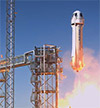Not that headquarters moves happen all that often, but they not as rare as they once were. Companies are increasingly willing to take bold steps if it means they can lower their overhead, boost efficiency, earn enticing incentives, get closer to customers, tap into attractive talent pools, be in proximity to a busy airport, or make a social statement. Headquarters moves can be corporate game-changers, but they can also be quite disruptive — in many cases, companies must weigh whatever benefits they seek with the reality that the move will likely drive away some valuable talent.
Saving Money
Consider the stunning headline from last October. Molson Coors announced plans to move its North American headquarters from Denver to Chicago. A company with nearly 150 years of history in the Centennial State decided to streamline its structure in the hopes of saving $150 million.
State officials have taken comfort in the fact that the massive brewery operation in Golden will keep on brewing mountain-adorned cans and bottles of beer — and, in fact, the company is spending several hundred million dollars modernizing the operation. But the Denver office would be on the move, the company said. Though Molson Coors has offered to relocate some of the 300 or so employees, more recent headlines have indicated the majority are likely to leave the company.
The kind of cost savings that prompted Molson Coors’ headquarters move is also creating interest in such places as Virginia, according to Jennifer Wakefield, COO with the Greater Richmond Partnership. “Companies up and down the East Coast can save quite a bit on real estate, up to one-third, and 15 to 20 percent on labor,” she says. “And they don’t have to worry about sacrificing talent.”
Lara Fritts, the organization’s president and CEO, says even companies that have reason to keep their main headquarters in high-rent places often gain value by moving “middle office” functions to places such as Richmond. That might mean risk management, internal consulting, marketing research, general problem-solving, and a whole host of other occupations and functions. “Moving them out of larger markets is an attractive option. They don’t need to be in expensive space.”
The area, Wakefield says, is home to 10 Fortune 1000 headquarters operations, and a host of regional or divisional bases. CoStar, for example, established its global research center in Richmond, and quickly ramped up its head count to 600. There’s a McKesson Medical-Surgical divisional headquarters there, as well as the base of the less-than-truckload shipping division of UPS, to name just a few.
Certainly, officials representing state and local jurisdictions are eager to provide as many financial reasons as possible for companies to consider a headquarters relocation. And not just for the really big fish, such as the Amazon HQ2 free-for-all that had governments and economic development organizations pulling out all the stops and dreaming up massive incentive packages.
For example, carrots such as Indiana’s Headquarters Relocation Tax Credit are not uncommon and written into state code — this one generates a credit against a corporation’s state tax liability if it changes its HQ address to “IN.” And proving that you don’t have to be Amazon to get attention, Indiana’s Small Headquarters Relocation Tax Credit, as its name suggests, is for smaller but high-growth firms that move their headquarters, or at least 80 percent of their payroll. One example: State incentives and local efforts combined to persuade California-based PerceptIn, a maker of self-driving vehicles, to move its global headquarters to the Indiana IoT Lab in Fishers.
Headquarters Facilities on the Move
Map Description: Locations across the country are drawing national and regional headquarters for a variety of reasons.
-
Molson Coors
Chicago, ILMolson Coors has announced plans to move its North American headquarters from Denver to Chicago, although it is likely to lose the majority of its 300 or so employees in the process.
-
CoStar
Richmond, VACoStar established its global research center in Richmond, Va., and quickly ramped up its head count to 600.
-
McKesson Medical-Surgical
Richmond, VAMcKesson Medical-Surgical has a divisional headquarters in Richmond.
-
PerceptIn
Fishers, INState incentives and local efforts combined to persuade California-based PerceptIn, a maker of self-driving vehicles, to move its global headquarters to the Indiana IoT Lab in Fishers.
-
Made in Space
Jacksonville, FLMade in Space, which was founded a decade ago in Mountain View, Calif., is moving its corporate headquarters to Jacksonville, Fla., where it already has established operations.
-
Acrisure
Caledonia, MIGlobal insurance broker Acrisure is relocating and expanding its state-of-the-art future headquarters to Grand Rapids, Mich., where it will generate an investment of $33 million and create 400 local high-wage jobs.
-
Raytheon Technologies Corp.
Boston, MADefense industry giants Raytheon Co. and United Technologies Corp. are bringing their organizations together to form Raytheon Technologies Corp., which will be headquartered in the Boston area, where Raytheon is currently based.
-
Raytheon’s Integrated Defense Systems
Tucson, AZRaytheon’s Integrated Defense Systems division, presently based in Massachusetts, is likely to land in Tucson, Ariz.
“For companies that want to be here, it’s going to be because of access to the market, whatever it is that they do,” says Bruce Payne, economic development director for the City of Arlington, Texas. “This is a region of 7.2 million people. That is what potential companies look at.”
They also look at such things as the labor force, he says, because not everyone working in a headquarters operation is willing or able to pick up and move. “They already have a labor force in-house to some degree, but they are going to lose a portion of that. They need to know how easy it is to replace people in key positions,” Payne says.
Headquarters moves can be corporate game-changers, but they can also be quite disruptive. “As states around the country are facing an impending skills gap, companies are becoming increasingly concerned with accessing the type of highly skilled talent they need to grow their business,” agrees Josh Hundt, chief business development officer and executive vice president with the Michigan Economic Development Corp. It’s a common question, and one that economic development leaders virtually everywhere are working to answer. In the case of his state, Hundt cites programs aimed at boosting the percentage of residents with postsecondary degrees or credentials.
Fritts and Wakefield say studies done for their Richmond organization have found a healthy available labor pool along with a strong talent pipeline from the regional university infrastructure. “Richmond is seeing an increase in young professionals choosing to live in our community — they’re choosing to stay here,” Fritts says. That helps to fill those middle office jobs and regional headquarters needs.
On the other hand, companies making a headquarters move generally would prefer to lose as few people as possible in the process. That elevates the importance of such factors as quality of life, the character of local communities, and housing availability and affordability, Payne says. Meet those needs in a positive way, and more of the current workforce will be willing to relocate.
Following the Industry
Sometimes a change of headquarters address makes sense from an industry-cluster perspective. Florida, for example, is well-known as a hub for the space business. Silicon Valley, of course, is famous for technology innovations. It’s no surprise that a cutting-edge developer of space manufacturing technology would emerge from Silicon Valley, as happened when Made in Space was founded a decade ago in Mountain View. But it’s also no surprise to learn that the company — known as the first to manufacture hardware off the planet — would be moving its corporate headquarters to Jacksonville, where it already had established operations.
Companies making a headquarters move generally would prefer to lose as few people as possible in the process. “By expanding our presence here in Florida, we expect to capitalize on the value offered by Florida’s business climate and its position as a world leader in aerospace research and investment,” Andrew Rush, company president and CEO, said in making the announcement in January. Rush cited the access to growth-enabling infrastructure and a skilled aerospace workforce in Florida.
Similarly, it’s not surprising to find a wide range of automotive-related headquarters operations in Michigan. Less obvious to most outsiders is the growing collection of insurance-related bases there, but it’s happening, according to Hundt.
Hundt cites global insurance broker Acrisure as an example. “Acrisure is relocating and expanding its state-of-the-art future headquarters to Grand Rapids,” he says, “where it will generate an investment of $33 million and create 400 local high-wage jobs.”
Lansing is becoming quite the insurance hub, he adds, with more than 7,500 people working in the sector. “As home to eight insurance company headquarters, the city of Lansing offers an existing industry base for companies looking for skilled talent and resources to elevate their businesses,” he explains. Building upon that is an initiative from the Lansing Economic Area Partnership called PROTO InsurTech. Hundt describes it as a business accelerator and equity investment fund targeting insurance industry growth.
Headquarters shifts are a not-uncommon byproduct of merger activity, too. For example, moves are expected as defense industry giants Raytheon Co. and United Technologies Corp. bring their organizations together to form Raytheon Technologies Corp. The combined company will be headquartered in the Boston area, where Raytheon is currently based. On the other hand, Raytheon’s Integrated Defense Systems division, presently based in Massachusetts, is likely to land in Tucson.




